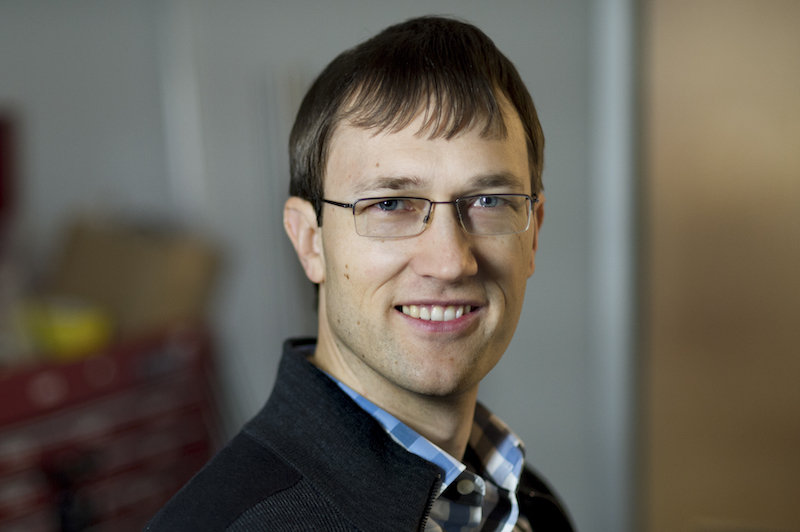Ulrich Viereck
PhD Student

Education
- MS in Electrical Engineering and Information Technology, Karlsruhe Institute of Technology - Germany
- BS in Electrical Engineering and Information Technology, Karlsruhe Institute of Technology - Germany
About Me
- Hometown: Freiburg, Germany
- Field of Study: Computer Science
- PhD Advisor: Robert Platt
Biography
Ulrich Viereck is a PhD student in the Computer Science program at Northeastern University’s Khoury College of Computer Sciences, advised by Professor Robert Platt. His main areas of research are artificial intelligence and robotics. He is interested in designing robots that assist humans in their daily lives. His objective is to develop algorithms that allow robots to interact in uncertain and unpredictable environments. He is particularly interested in improving the manipulation, perception, planning, and control of robots. Ulrich is a full-time research assistant in the Helping Hands Lab. Prior to joining Northeastern, Ulrich worked as an Engineer at Siemens Building Technologies and Mercedes-Benz Technology. He has a master’s degree and bachelor’s degree in electrical engineering and information technology from the Karlsruhe Institute of Technology, Germany. His publications appeared in 1st Annual Conference on Robot Learning (CoRL), Engineering in Medicine and Biology Society (EMBC) 37th Annual International Conference of the IEEE, and IEEE Computer Society Annual Symposium on VLSI.
What are the specifics of your graduate education (thus far)?
I have been focusing on artificial intelligence and robotics with a focus on robot manipulation, perception, planning, and control.
What are your research interests?
I am interested in designing algorithms that will enhance the performance of robots by enabling them to perform better in uncertain and unpredictable environments. More broadly, I am interested in other related fields that focus on human-robot interactions, natural language processing, high-level reasoning, and control of dynamic and under-actuated robots.
I have always been fascinated with robotics-related research. Being at Northeastern has allowed me to enhance my skills and knowledge in robotics and artificial intelligence.
What’s one problem you’d like to solve with your research/work?
We want to build robots that are useful in unstructured real world applications, such as doing work in the household. Grasping is particularly an important skill in this domain, yet it remains a challenge. One of the key hurdles is handling unexpected changes or motion in the objects being grasped and kinematic noise or other errors in the robot. My work with Professor Robert Platt and Kate Saenko at Boston University focuses on a method of learning a closed-loop controller for robotic grasping that dynamically guides the gripper to the object. We use a wrist-mounted sensor to acquire depth images in front of the gripper and train a convolutional neural network that directly learns the value function for grasp pose candidates. The training sensor data is generated in simulation, a major advantage over previous work that uses real robot experience, which is costly to obtain. Despite being trained in simulation, our approach works well on real noisy sensor images. We compare our controller in simulated and real robot experiments to a strong baseline for grasp pose detection, and find that our approach significantly outperforms the baseline in the presence of kinematic noise, perceptual errors and disturbances of the object during grasping. Our latest work focuses on extending our approach to assembly tasks such as cap on bottle placement or insertion of a peg into a hole. For these tasks we adapt the learned control policy from simulation to reality using a pairwise loss.
What aspect of what you do is most interesting?
With the use of advanced concepts from artificial intelligence, the capacity of robots and autonomous vehicles to operate in an unknown and stochastic environment independently is greatly enhanced. The future belongs to specialized intelligent systems in which robots will become more mainstream, increasing standards of living on a scale that has yet to be achieved. It will be an exciting time for more academic research in this rapidly changing field of study and improve our understanding of it. I find it fascinating to be part of this ground-breaking research.
What are your research or career goals, going forward?
My research goal is to develop algorithms that will enable robots to have a better performance in manipulation, perception, planning, and control. I believe that more research in these areas can make a real difference in how robots can improve our standards of living, be part of emergency response in natural disasters, and help us explore space.